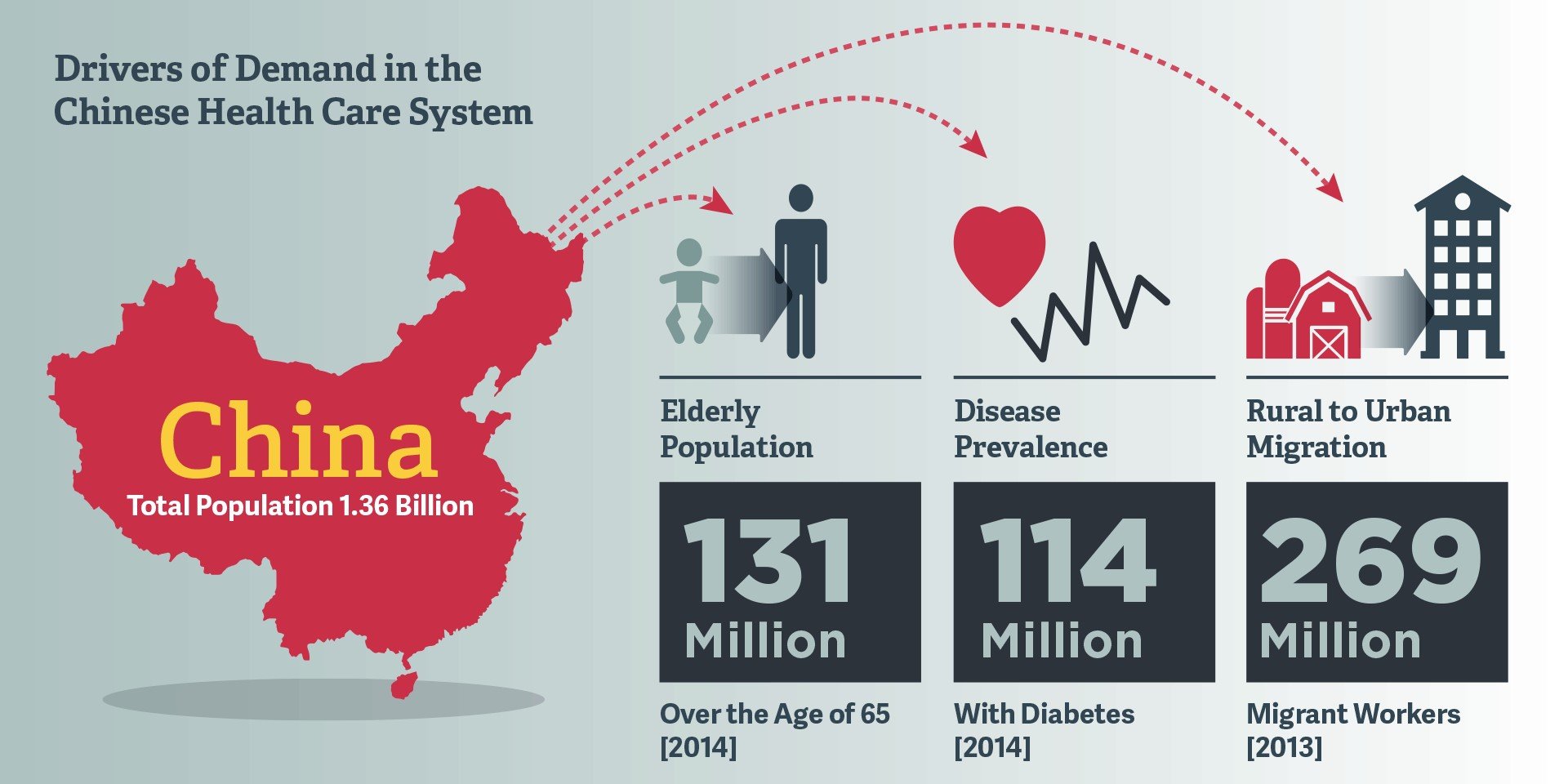-
Addressing Health Care Demand and Big Data in China
As China’s population ages, serious and chronic diseases, such as diabetes, respiratory illness, and cancers, have become increasingly commonplace. China is now home to half of all new patients diagnosed with liver cancer and one-third of all lung cancer and diabetes patients worldwide. This, combined with the continued rural-to-urban migration and rising economic fortunes of the Chinese population, has increased demand for more efficient health care services.
To meet the growing need, health care stakeholders must improve decision making based on data-driven scientific research with respect to the provision of health care resources. For interested researchers, many of the medical institutions now accumulating data across China present a big data conundrum: they have access to detailed data on extremely large numbers of patients, but these data are fragmented and inconsistent as a result of the country’s evolving medical care infrastructure. Despite the lack of standardization of data sources, however, the IT infrastructure of the Chinese health care system is reasonably well developed for both providers and payers.

Migrant Workers – 2013: National Bureau of Statistics of China; Elderly Population – 2014: CIA World Factbook; Disease Prevalence – 2014: Survey by American Medical Association
For stakeholders with the ability to navigate China’s system, these data represent a significant opportunity. Since 2012, Analysis Group, in coordination with its Chinese subsidiaries and partners, has played an active role in broadening access to Chinese medical data to produce high-quality health care research. Managing Principal Eric Q. Wu notes: “Many hospitals in China have already switched from paper records to electronic health records (EHR), and electronically linked databases feature clinical and economic information with large sample sizes, even for rare diseases. Analyzing this data to improve research and health care decision making has the potential to directly impact the lives of millions of people.” Dr. Wu adds, “Seizing these opportunities depends on research expertise and experience with the Chinese health care market to manage the consistency, standardization, and reliability of the data.” ■
From Health Care Bulletin: Fall 2014

